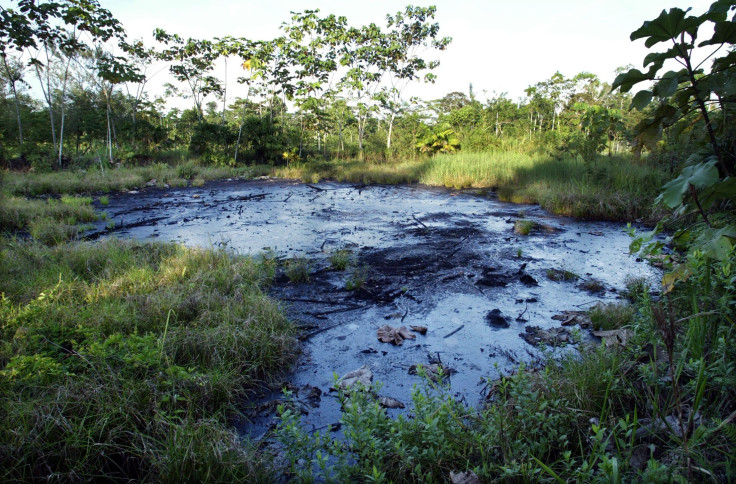Chevron Still Won't Bow To $19B Court Decision In Ecuador Pollution Case

Chevron may end up paying up to $19 billion in a case involving decades of pollution in the Amazon rainforest after the U.S. Supreme Court denied the oil giant’s appeal of a lower court decision that upheld an Ecuadorian court judgment that first issued the fine.
A federal judge in New York had previously issued a worldwide injunction in March 2011 against the Ecuadorian judgment which was issued a month earlier in February. The ban was later overturned by the 2nd U.S. Court of Appeals in New York in January this year after concluding that Chevron had prematurely challenged the Ecuadorian court decision as the plaintiffs did not seek to enforce the claim in the state of New York.
The legal battle, which has been ongoing for nearly two decades, was initiated on behalf of a group of around 30,000 indigenous residents in northeastern Ecuador’s Lago Agrio region, where they claimed the American oil company Texaco, which merged into Chevron in 2001, had contaminated the area during its operations in the area from 1964 to 1992.
To this day, hundreds of pools of black sludge remain where Texaco had dug waste pits to deposit contaminated water used in drilling oil wells.
In 1995, Texaco did not deny this fact when it agreed to clean up 37 percent of the pits, a percentage equal to its stake in a consortium -- which included the state oil company Petroecuador -- that funded the drilling, though Texaco was the sole operator on the ground in Lago Agrio.
After Texaco spent $40 million on the cleanup, the Ecuadorian government agreed it would not make any further claims against the company in 1998, despite more than half of the pollution remaining, the New Yorker reported.
The environmental damages at the site were estimated at $8.6 billion in the Ecuadorian court’s judgment, but later doubled the figure after the company refused to issue a public apology.
Chevron has maintained that Texaco fulfilled its legal obligations for environmental remediation in Ecuador prior to it acquiring the company, and that the remaining pollution is now the responsibility of the Ecuadorian government and Petroecuador.
Despite the 1998 agreement between the Ecuadorian government and Texaco, the Lago Agrio residents, as private citizens, were still able to file a claim against Chevron, which was eventually ruled in their favor by an Ecuadorian court after a long, drawn-out legal battle.
Chevron has rejected the Ecuadorian court decision, saying in a statement that it was “a product of bribery, fraud, and it is illegitimate,” adding that the company “does not believe that the Ecuador judgment is enforceable in any court that observes the rule of law.”
Commenting on the recent rejection of its appeal, Chevron said it would continue to fight the Ecuadorian court ruling through other avenues.
“While Chevron is disappointed that the Court denied our petition, we will continue to defend against the plaintiffs' lawyers' attempts to enforce the fraudulent Ecuadorian judgment," Chevron told Reuters in an email.
Chevron is challenging the ruling under a trade agreement between the U.S. and Ecuador, which will come before an international arbitration panel in November, according to Reuters.
The company is also pursuing legal action against individuals involved in the original case, including one of the plaintiff’s lead lawyers, Steven Donziger, and members of environmental groups, accusing them of racketeering, intimidation and extortion.
According to the New Yorker, Donziger, who has been involved in the case since it began in 1993, remarked in a speech earlier this year on the challenges of seeking a claim against a major multinational corporation like Chevron, saying its “main strategy is to exhaust you.”
© Copyright IBTimes 2025. All rights reserved.



















